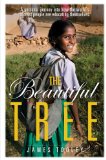Just occasionally you start to read a book and within minutes you know you are on to an absolute winner. This is one such book:
 James Tooley grabs your attention right from the very start with a deeply personal story of how he went to India to study private schools for the few and discovered a vast and virtually hidden network of private schools for the poor.
James Tooley grabs your attention right from the very start with a deeply personal story of how he went to India to study private schools for the few and discovered a vast and virtually hidden network of private schools for the poor.
Taken aback by the sheer number of these backstreet schools, he reported what he had seen to his colleagues at the World Bank and was met with a mixture of disdain and bemusement. These schools were "ripping off the poor" it seems, despite the fact that poor parents were scrimping and saving to afford the fees they could have avoided by simply sending their children to the free state schools. Why would they do this? The answer was very simple - a survey of state schools found that "in only half was there any teaching activity at all".
Another excuse was that these schools were creaming off the elite, an story I heard just the other day about schools in the UK. Poor parents were criticised for increasing inequality - another story that will be familiar to UK readers.
What was even more amazing was Tooley's discovery that the success of the private education sector had been noted by luminaries like development economist Amartya Sen, and had been reported upon by Oxfam. And both the economist and the charity had then concluded that universal state provision was the correct way forward.
Staggering isn't it?
It is hard to escape the conclusion that development gurus like Sen and mega-charities like Oxfam are part of the problem here. The incentive of the charity workers is to keep the people poor so that the problem never goes away. This is the bad charity of the title of this post.
And the good charity? There's plenty of it in evidence in the book. Here's Tooley:
Ten-year-old Farath Sultana also attended Peace High School. Her father works as a cleaner in a mosque and earned a monthly salary of 700 rupees ($15.55), which he admitted was not enough to feed his four family members. The family lived rent free with relatives who helped them get through each month by providing food. Both the mother and the father were illiterate, but they wanted their chidren to be educated. Peace High School provided both Farath and her six-year-old brother free tuition because of their critical financial position.